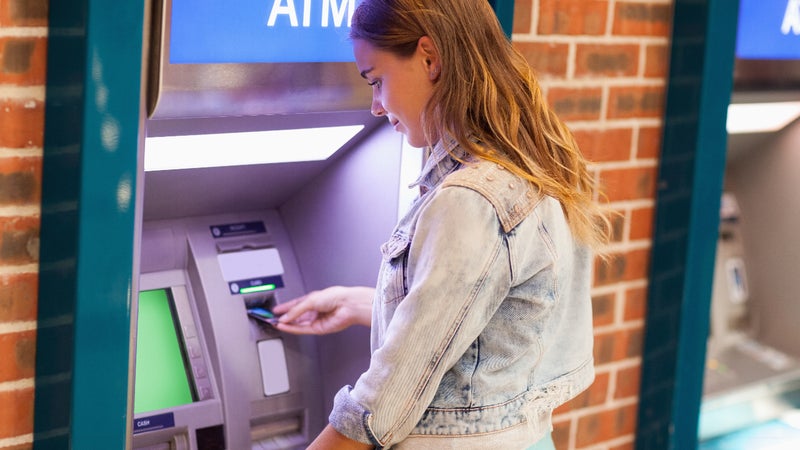How to start saving (even if you’re starting from scratch)

The Bankrate promise
At Bankrate we strive to help you make smarter financial decisions. While we adhere to strict , this post may contain references to products from our partners. Here's an explanation for .
Saving money is not quite as fun as spending it, but money in the bank can be a lifesaver when you’re hit with unexpected expenses or a sudden job loss. When your bank account balance is only a few dollars, however, it’s easy to feel that saving any amount of money is impossible.
If you struggle to save money, you’re in good company. Only about 4 in 10 U.S. adults (44 percent) could cover the cost of a $1,000 emergency with savings, according to a recent Bankrate survey.
You might think you need to make more money in order to save, but there are actually plenty of other ways you can start your nest egg today rather than tomorrow, ranging from simple habits to innovative digital tools.
Write down your savings goals
Having specific goals can help you save more money. Write down your savings goals or save them in a spreadsheet, and assign them names (like “emergency fund” or “new car fund”) and deadlines. Then, identify how much to set aside each month to have the full amount when you’ll need the money.
Using multiple savings accounts can also help you meet your goals, since you can devote one account to each goal and easily track your progress.
An alternative is to use a bank that lets you create categories — sometimes called buckets — within the same account that allow you to save toward different goals. Examples of such accounts are the Sallie Mae SmartyPig account and the Ally online savings account.
Create a budget
The idea of coming up with a budget can be intimidating, but keep in mind it’s as simple as listing your income and expenses each month. Create spending categories for things like housing, transportation, utilities, groceries and entertainment.
Add line items to your budget for your savings goal categories, such as “emergency fund” or “wedding fund,” and devote money to them each month, just as you devote money to the other spending categories.
Find a home for your savings
Remember, no amount is too small to start saving — even a dollar counts. If you need to, go with a savings account that allows for low minimum balances.
Also, seek out a savings account with a competitive annual percentage yield (APY) and that either doesn’t charge monthly fees or lets you avoid them by meeting certain requirements.
Whatever bank you choose, consider using a money-saving app. If you have a checking account, for example, you can connect it to an app like Digit, which can automatically move small amounts of money it thinks you can afford into your savings every few days, to help you save more quickly.
There are plenty of other automated savings apps or bank accounts to choose from: Qapital, Albert, Ally Bank and Chime are a few options to keep you going and add some speed to your savings habit.
Keep checking and savings accounts at different banks
New savers may want to create a barrier between the money being saved and the money being spent, to make it less tempting to dip into the savings for impulse purchases.
You can do this by setting up your checking and savings accounts at separate banks. Then, connect the accounts via an automatic transfer from your checking into your savings account.
“It’s a psychological thing,” says Pamela Capalad, a certified financial planner and owner of Brunch & Budget. “When you open your bank account app and your checking and savings numbers are in there, you kind of add those numbers together and you’re like, ‘Oh, that’s how much money I have to spend.’ But if they are totally separate, you kind of forget.”
Set up direct deposit
The most convenient way to get paid is by using direct deposit, whereby your employer deposits your paycheck electronically into your bank account. You can access the money more quickly than you would by receiving and depositing a paper check.
Direct deposit was used by 96 percent of respondents in a 2021 “Getting paid in America” survey conducted by the American Payroll Association.
Various banks allow you to avoid maintenance fees by setting up direct deposit, and some banks — and bank challengers like Chime — even provide access to your paycheck up to two days early with direct deposit.
Find areas to cut your spending
It’s easy to buy things we know we shouldn’t — and no, we aren’t arguing that buying lattes is why more of us aren’t millionaires.
“If you want to get coffee, (then) get coffee,” says Mariel Beasley, co-director of Common Cents Lab, a financial research lab at Duke University. “But all of us can look back at our bank statement and say, ‘Oh man, I can’t believe I spent that much on that,’ or, ‘Oh man, I wish I hadn’t bought it.’”
Assess whether you’re wasting money on things you don’t really want or need. This can include subscriptions for streaming services, magazines or other services you find you don’t use. Cancel such subscriptions and put a portion of that money into savings.
If this sounds tedious, you can outsource the chore. Some apps, like Trim and Bill Slasher, can negotiate a bill on your behalf. If you want to call the shots on what expenses stay and go, try pairing the activity with something you enjoy. For example, don’t listen to the next episode of your favorite podcast until you take on the task. It’s known as temptation bundling — pairing something you want with something you don’t want to do.
“You create a way to reward yourself for doing an unpleasant but important activity,” Beasley says.
Find ways to grow your income
You may have cash streams you can allocate to savings, such as birthday money, funds earned from a side hustle or coins you’re cashing in for dollars. Choose one of your income sources and assign it as savings, Beasley says.
Bottom line
There’s no silver bullet to jumping on the savings bandwagon. Techniques that work for one person might not work for another. Stay on the lookout for something or someone that motivates you to keep saving small amounts of money regularly.



